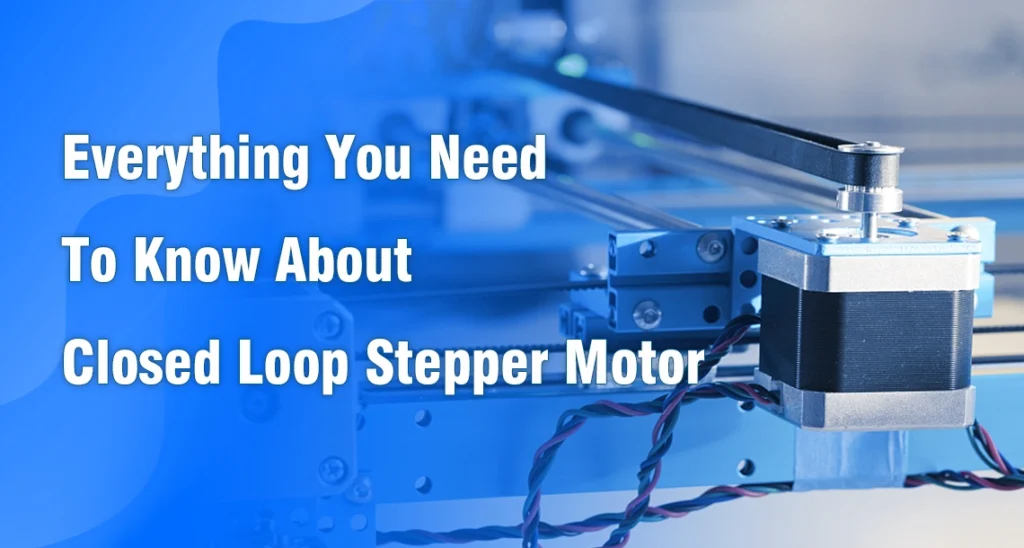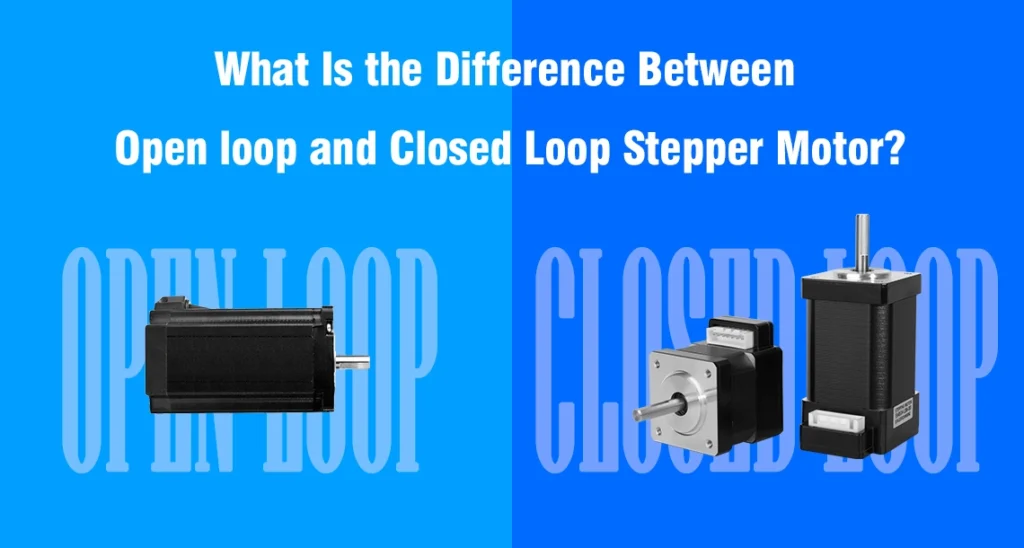In the world of 3D printing, choosing the correct components is essential for achieving accuracy, efficiency, and reliability. In this detailed blog, MXELECTRON will explore key factors to help you select the perfect closed loop stepper motor that matches your 3D printer’s specifications.
Why Closed Loop Stepper Motor is Important in 3D Printing?
Closed loop stepper motors are crucial in 3D printing for their ability to detect and correct errors in real-time, ensuring precise movement control. This enhances print quality by minimizing inaccuracies and maintaining consistency throughout the printing process.
How to Choose Closed Loop Stepper Motor for the 3D Printer?
When selecting a closed loop stepper motor for your 3D printer, several factors come into play to ensure optimal performance and compatibility.
Like: Torque and Power, Accuracy and Precision, Size and Compatibility, Noise Level, Heat Generation, and Cost Considerations.

- Torque and Power
The motor’s torque and power ratings determine its ability to drive the extruder and move the print bed accurately. Motors with elevated torque can manage weightier loads and hasten more rapidly, culminating in sleeker prints.
- Accuracy and Precision
Precision is paramount in 3D printing, and closed loop stepper motors play a crucial role in achieving consistent layer heights and intricate details. Look for motors with high step resolutions and minimal backlash for precise movements.
- Size and Compatibility
Ensure that the motor size matches your printer’s specifications and mounting requirements. Compatibility with your printer’s controller board and firmware is also essential for seamless integration and optimal performance.
- Noise Level
Stepper motor noise can be disruptive, especially in home or office environments. Choose motors with low noise levels to minimize distractions and create a more pleasant printing experience.
- Heat Generation
Excessive heat can degrade motor performance and shorten its lifespan. Opt for motors with efficient cooling mechanisms or consider additional cooling solutions to maintain optimal operating temperatures.
- Cost Considerations
While quality should be a primary consideration, balancing performance requirements with budget constraints is essential. Evaluate the features and specifications offered by different motors to find the best value for your investment.
Is it essential to install a closed loop stepper motor in 3D printing?
Yes, installing a closed loop stepper motor in 3D printing is highly recommended. These motors offer real-time error detection and correction, ensuring precise movement control and enhancing print quality. While not strictly necessary, they significantly improve the overall performance and reliability of 3D printers.

Conclusion
Choosing the right closed loop stepper motor is critical for achieving optimal performance and print quality in 3D printing applications. By considering factors such as torque, precision, compatibility, and cost, you can make an informed decision that meets your specific requirements and budget.
FAQs
Q1: Can I use any closed loop stepper motor for my 3D printer?
A1: It’s essential to choose a motor that matches your printer’s specifications in terms of size, torque, and compatibility with the controller board.
Q2: How do I determine the torque requirements for my 3D printer?
A2: Consider factors such as the weight of the print head, extruder, and print bed, as well as the desired print speed and acceleration.
Q3: Are closed loop stepper motors more expensive than open-loop systems?
A3: While closed loop systems may have a higher upfront cost, they offer superior performance and reliability, ultimately providing better value in the long run.
Q4: What is the typical lifespan of a closed loop stepper motor?
A4: With proper maintenance and operation, closed loop stepper motors can last for thousands of hours of continuous use.
Q5: Can I upgrade my existing 3D printer with a closed loop stepper motor?
A5: In most cases, yes. However, ensure compatibility with your printer’s hardware and firmware before making any upgrades.
Q6: How do closed loop stepper motors improve print quality?
A6: By minimizing missed steps and correcting errors in real-time, closed loop systems ensure consistent and accurate movements, resulting in higher-quality prints.
Q7: Are closed loop stepper motors suitable for high-speed printing applications?
A7: While closed loop systems excel in accuracy and stability, their suitability for high-speed printing depends on factors such as torque capabilities, feedback mechanism responsiveness, and overall system dynamics.



